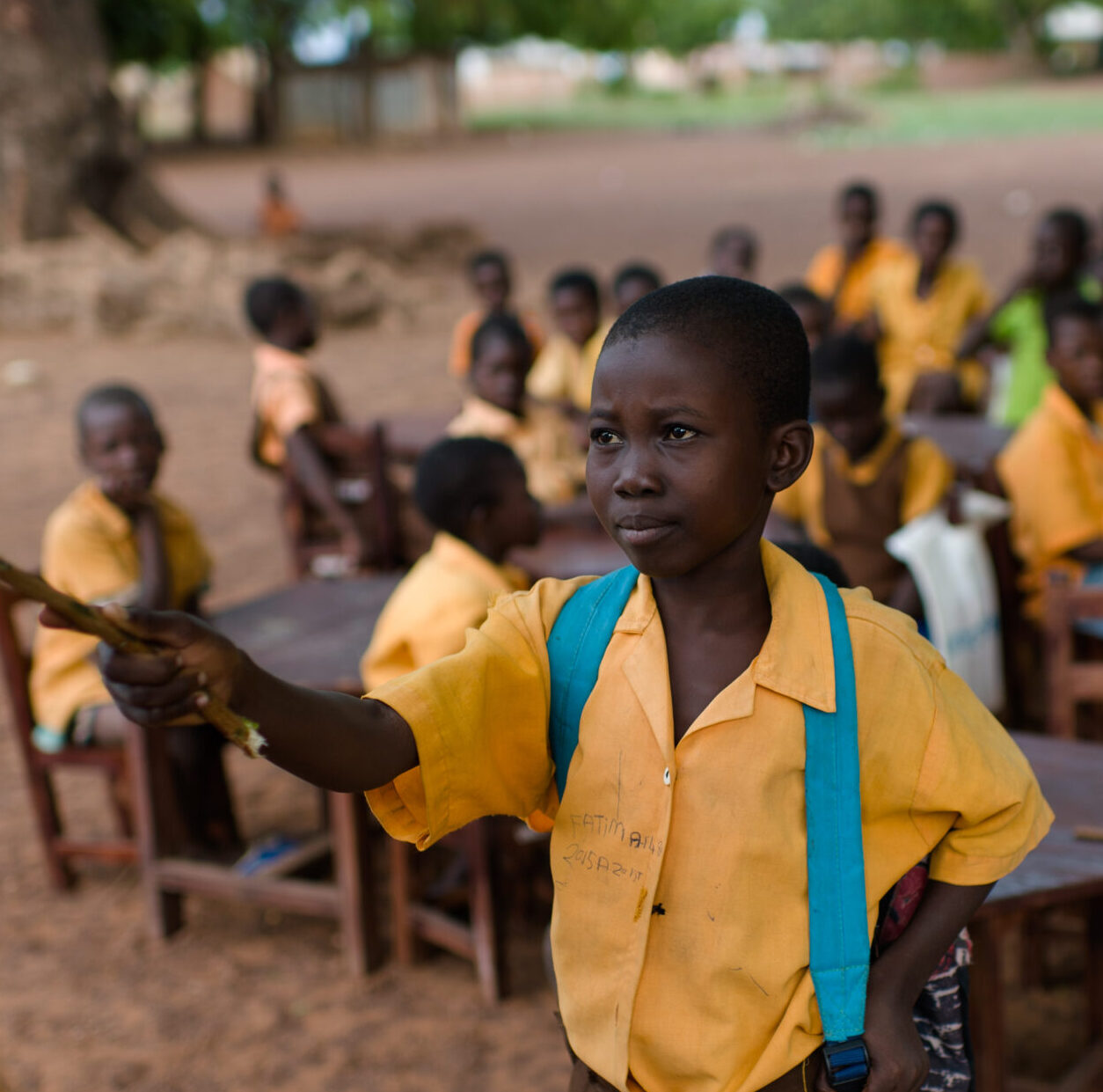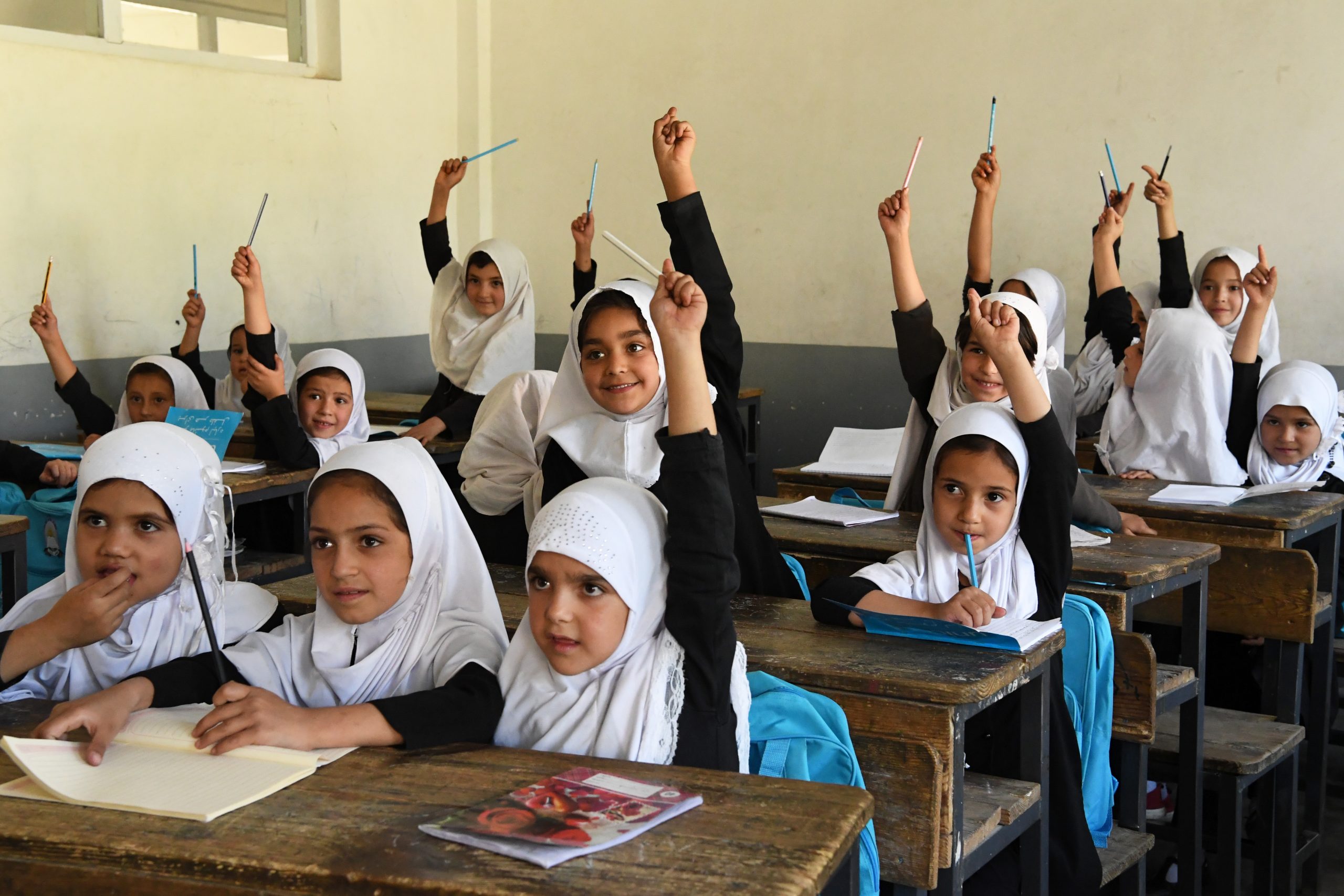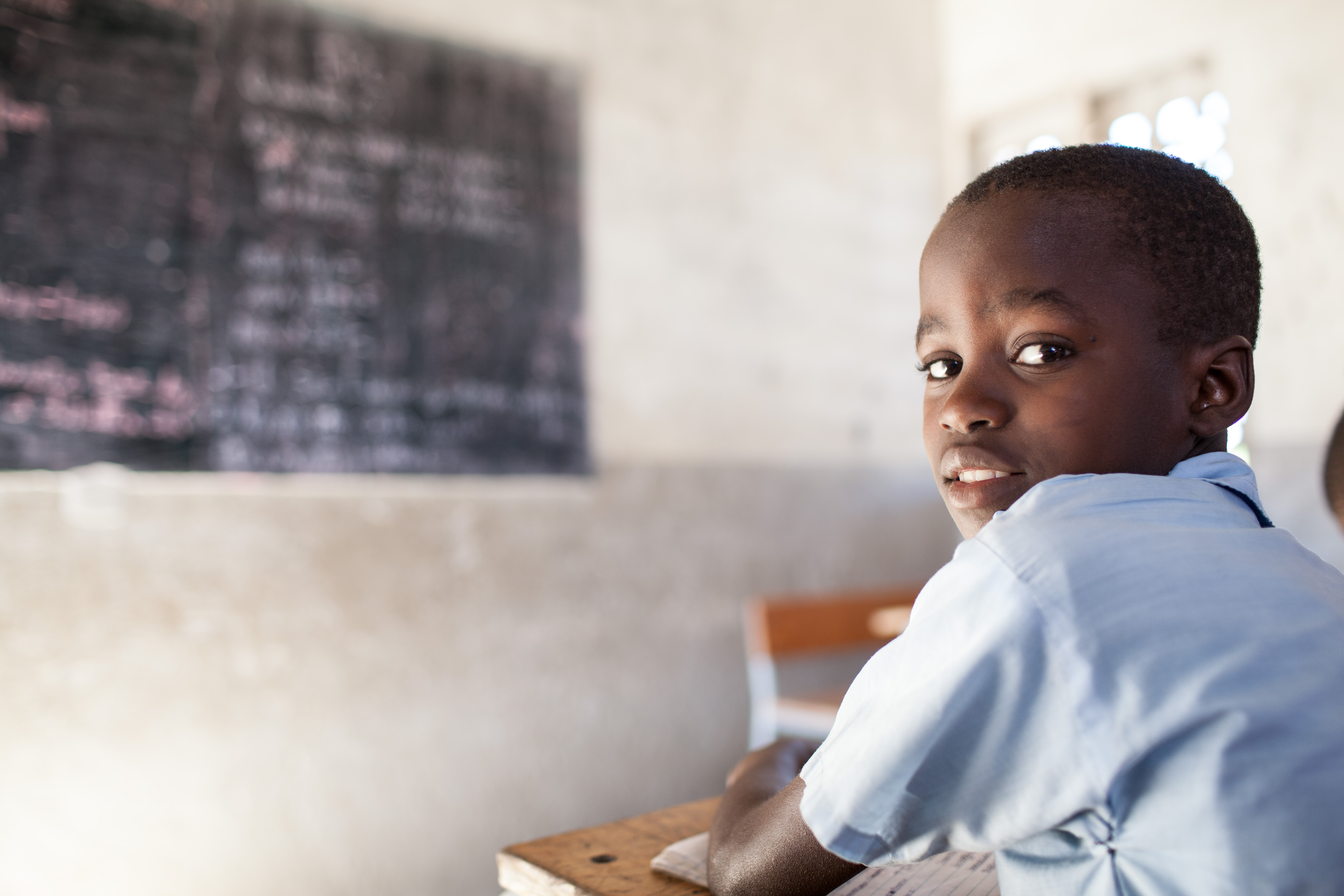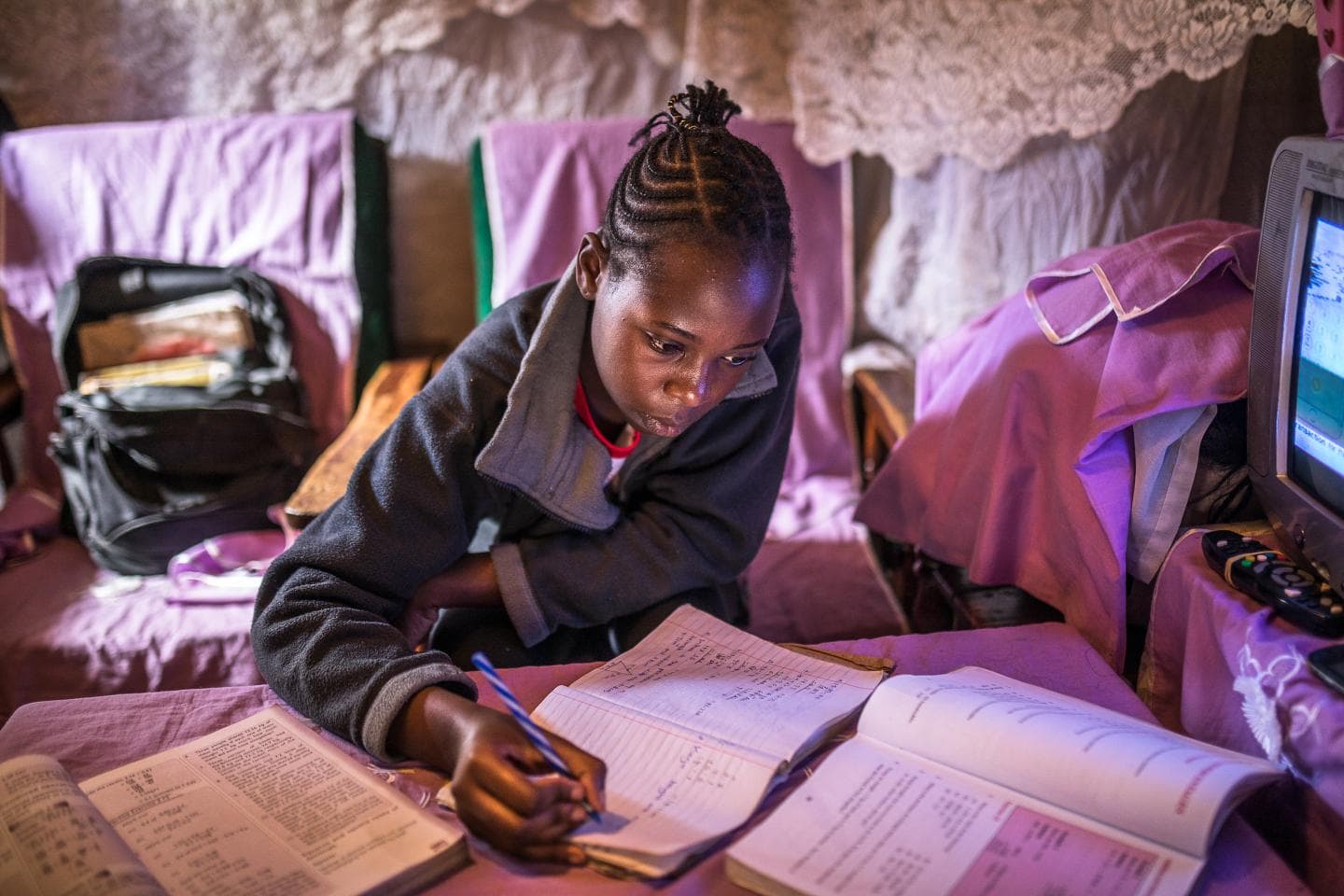Learning and skills
Now more children are enrolled in school than ever before but far too many of them are not learning. Data from Multiple Indicator Cluster Surveys (MICS) show that many children around the world today are not equipped with foundational reading and numeracy skills that prepare them for the world beyond school. In addition, the digital nature of modern society makes information and communications technology (ICT) skills essential to full social and economic participation, yet data show that many children and youth do not possess these vital skills.
Many children lack foundational reading and numeracy skills, and drastic disparities are observed both within and between countries
Learning outcomes are critical indicators of quality education. The MICS6 Foundational Learning Skills module measures the learning outcomes at Grade 2 and 3 levels in numeracy and reading (SDG4.1.1.a). A recent UNICEF report using MICS6 data confirms that the learning crisis is real for most children, in which few children from disadvantage or marginalized groups have foundational learning skills.
In the 35 countries and territories with available data, there are considerable disparities in the proportion of children equipped with foundational reading and numeracy skills. The median share of children with foundational reading and numeracy skills is 41 per cent and 25 per cent, respectively. However, in the Central African Republic and Chad, very few children aged 7 to 14 demonstrate foundational reading and numeracy skills that they should have acquired in Grades 2 or 3. In contrast, in Viet Nam, Belarus, and Turkmenistan, over 80 per cent of the children in the same age group have foundational reading skills.
Besides overall performance, the magnitude of the gender gap also varies across countries. Among the 35 countries that have data for the foundational learning module, the median gap between the proportion of girls and boys with foundational reading skills is 2 percentage points. However, while the gender gap is almost non-existent in Turkmenistan, in Lesotho a much higher share of girls demonstrate foundational reading skills than boys, with a gap close to 20 percentage points.
Compared to the gender gap, differences in foundational numeracy skills by wealth are more evident. In all countries, a higher share of children from the top wealth quintile have foundational numeracy skills compared with children from the bottom wealth quintile, with a median gap of 16 percentage points. The disparity is largest in Nepal, where the share of the children from the poorest families with foundational numeracy skills lags 37 percentage points behind children from the richest families.
Many young people do not have ICT skills, and skill levels vary significantly based on gender and socioeconomic background
Our more digitized and globalized world means that the future success of today’s youth depends on their having ICT skills. The Mass Media and ICT modules in MICS6 provide information on men’s and women’s use of ICT skills in nine activities ranging from copying or moving a folder to writing a computer program. Individuals are counted as having ICT skills if they performed at least one of the nine activities in the past three months (SDG4.4.1).
Across the 34 countries and territories with available data, the median share of young men with ICT skills is 20 per cent, whereas the median share of young women with ICT skills is only 12 per cent. As measured by the median of differences across countries, the gender gap favors young men by 3 percentage points. Data further show significant variations across countries: in Malawi and Bangladesh, less than 3 per cent of young women aged 15 to 24 performed any ICT-related activity. In contrast, around two in three of the young men and women in Turks and Caicos Island did so.
Findings in these countries show even greater differences in ICT skills across wealth quintiles. Among the 34 countries with data available, the median difference in ICT skills for young women from the richest and the poorest wealth quintiles is 27 percentage points. The divide in ICT skills is even wider for young men from the richest and poorest quintiles, with a median gap of 38 percentage points.
Literacy among youth is rising, but young women lag behind, and regional disparities persist
Literacy rates measure the basic literacy skills that primary education should equip the population with and can provide insights on the proportion of youth aged 15 to 24 with minimum proficiency in reading and writing (SDG4.6.2). Globally, the youth literacy rate increased from 87 per cent in 2000 to 92 per cent in 2020. Although the gender gap between males and females narrowed, young women still have a literacy rate 2 percentage points lower than young men. The regions of South Asia, West and Central Africa, and Eastern and Southern Africa account for 87 per cent of illiterate youth aged 15 to 24 globally. In addition, the gender gap in South Asia and West and Central Africa is pronounced – these regions each has around 4 million more young women than young men who are illiterate.
Learning and skills
Build and download your own customisable dataset
Resources




Notes on the Data
For a full picture of children’s school participation, UNICEF uses two sources of data: enrolment data, which are based on administrative records, and attendance data from household surveys. In half of all countries, data on primary and secondary education come from more than one source. All data on primary and secondary education used by UNICEF are based on official International Standard Classifications of Education (ISCED) and may deviate somewhat from those used by country-specific school systems.
Definition of indicators
Foundational reading skills – Foundational reading skills measure the minimum proficiency skills in reading expected in Grade 2/3. Foundational reading skills are divided into three categories: 1) word recognition (correctly reading 90 per cent of words in a story), 2) literal questions (replying correctly to all three literal questions), and 3) inferential (replying correctly to both of two inferential questions). If the child succeeds in all three tasks, s/he is considered to have foundational reading skills.
Foundational numeracy skills – Foundational numeracy skills measure the minimum proficiency skills in numeracy expected in Grade 2/3. Foundational numeracy skills are divided into four tasks: 1) number reading, 2) number discrimination, 3) addition, and 4) pattern recognition. Each task is composed of several questions and the child must correctly answer all questions to successfully complete the task. If the child succeeds in all four tasks, s/he is considered to have foundational numeracy skills.
ICT skills – ICT skills are calculated by the simple ratio of the number of individuals in a demographic group who used a certain ICT skill, divided by the total number of people in that demographic group.
Youth literacy rates – The share of population that can both read and write a short, simple statement about their everyday life.